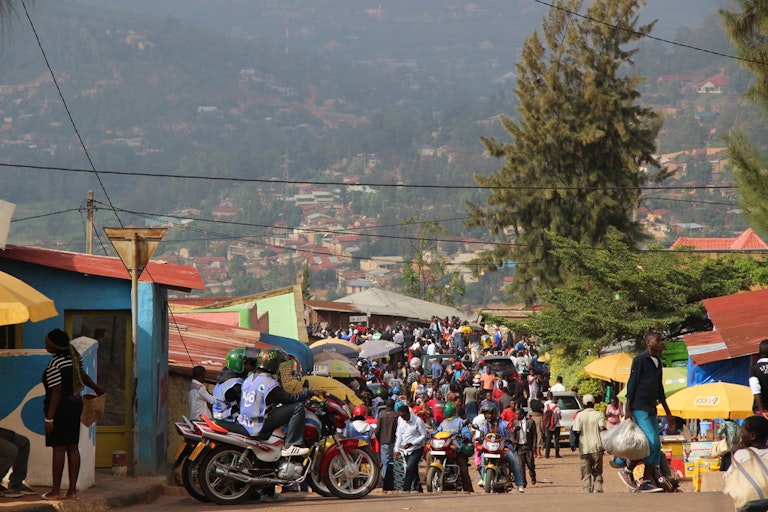Problems with some forms of inequity are easier to understand than others. Unequal access to healthcare or food, for example, is clearly bad for everyone’s wellbeing, contentment and productivity.
The problem with some other forms of inequity, however, is less clear. For instance, not every individual can have the same “opportunities”.
My colleagues and I were intrigued by the apparent link between income inequity and health. In particular, we were puzzled by the assertion that income inequity was robustly associated with wellbeing and stress. Why would knowing that a small proportion of people have preposterously large incomes necessarily affect someone’s wellbeing? We wanted answers to the questions of why income inequity is a problem and why it has been so difficult to resolve.
To answer these questions, we undertook an extensive search of the published literature. We studied the publications of leading authorities in the field of health inequity and examined the sources they had referenced.
One of our initial discoveries was the caveats that apply to the apparent link between income inequity and people’s health and happiness. For example, the research underpinning this link applies only to more affluent countries. In poorer countries, economic development is of greater importance for wellbeing than the gap between those with the most money and those with the least.
We didn’t start our investigation to discover where income inequity might have the greatest relevance. But our findings did suggest income inequity might have limited relevance in African settings. What might, perhaps, be more important for wellbeing is the ability to contribute to decisions about how to live in a social group. Therefore, political, economic, and governance structures might be more important than income inequity.
Investigating inequity
We came across frequent references to concepts like self-determination, freedom, capability, agency, and opportunity. Michael Marmot, a professor of epidemiology and public health, is a highly regarded authority in this area. For example, he writes about the freedom to be and to do. He suggests that it is not so much how much money you have “but what you can do with what you have” that is important for your health. Joseph Stiglitz, the American economist and public policy analyst, proposes that burgeoning inequity is one side of a coin with shrinking opportunity on the other side.
A recent review of the historical origins of inequity suggested that the fundamental issue is not how equitably people are able to access material resources. Rather, it is how equitable the capacity is to contribute to decisions about how to live together.
For us, all these ideas could be captured and accommodated by the fundamental mechanism of individual control of key priorities for living. The process of control is the defining feature of life. It refers to keeping a balance at all levels of functioning for all living things. Control explains why the capacity to contribute to decisions about how to live and live together has always mattered so much to people.
Through our efforts to understand inequity more clearly, we arrived at the position that inequity in and of itself is not a problem. Compromised control is the problem because it interferes with people’s ability to live as they would prefer.
Stiglitz, for example, maintains that inequity in the US exists because the top 1% (in terms of income) want it to. He suggests that the ultra rich are able to directly influence political decision-making, including systems of taxation, so that their fortunes are protected. He reminds us that the fate of the top 1% is inextricably linked to the fate of the remaining 99%. But the very rich often ignore this fact, to their ultimate peril.
Relevance to African countries
Inequity, therefore, and especially income inequity, might have limited relevance in African settings. The concept of control, however, encompassing the ability to contribute to decisions about how one can live harmoniously and productively in a social group, may have much greater relevance and application.
Healthcare services could do much more to adapt treatments and interventions to local contexts. For wellbeing, this might involve developing programmes based on the prevailing culture and belief systems rather than imposing, for example, western biomedical ideas of psychological illness. Rwandan scholar Jean Pierre Ndagijimana describes the development of a programme of psychological healing in Rwanda that was based on local concepts like kongera kwiyubaka and kwigira (rebuilding ourselves again).
Governance structures that provide opportunities for people at a local level to contribute to decision-making would also enhance people’s abilities to control important factors in their life. Rwanda, for example, is organised according to provinces, districts, sectors, cells and villages. At each level are various positions and groups that are responsible for different aspects of governance and decision-making. This move to more decentralised forms of government commenced in 2001 and is reported to have increased citizen participation in local decision-making as well as greater equity in resource allocation and services.
How things might be different
Greater attention to control could be helpful in a general sense. Corruption is often identified as a problem in government, organisations and industries. Corruption might be considered as nothing more than people in positions of authority using that authority at their own discretion to advantage some people while disadvantaging others. A CEO, for example, might create positions in an organisation for family members and remove people who disagree.
Inequity, as a concept, has not been a topic of interest and investigation for all time and across all people. Control is as important as life itself. The important lesson from our very earliest beginnings is that societal structures and institutions generally, as well as entities such as healthcare systems, must be organised so that the few do not determine the fates of the many.
The sustainability of social living depends on being able to find ways for all members of a community, society, nation, and indeed the planet, to live lives of their own design without preventing others from doing the same.

